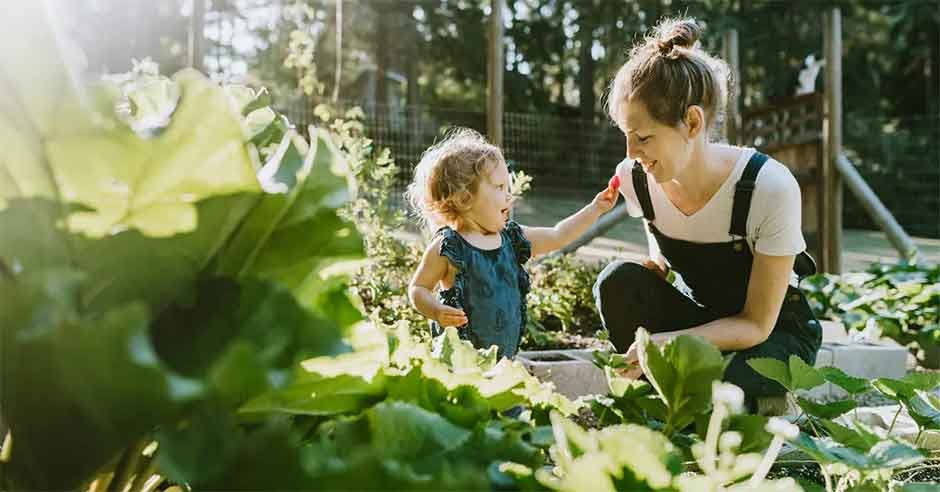The Benefits of Growing Your Own Vegetables for Health and Sustainability
Are you tired of buying expensive and often tasteless vegetables from the grocery store? Have you ever considered growing your produce but don’t know where to start? Look no further! This blog post will explore the many benefits of growing your own vegetables, including improved health and sustainability. So grab a shovel and start this exciting journey towards healthier living!
Benefits of Growing Your Own Vegetables
There are many benefits to growing your own vegetables, both for your health and for the environment.
Growing vegetables allows you to control what goes into them, ensuring they are free of harmful pesticides and chemicals. You can also grow organic vegetables, which are even better for your health and the environment. Fresh vegetables also contain more vitamins and minerals than their processed counterparts.
In addition to being healthier, growing your vegetables is also more sustainable. Commercial farming practices often involve monocropping or growing only one crop type. This can lead to soil depletion, erosion, and increased pest problems. In addition, growing various crops in your garden helps diversify the local ecosystem and improve soil health.
Health Benefits
There are countless health benefits to growing your vegetables. Not only can you control the quality of the food you’re consuming, but you also have the potential to increase the nutrient density of your diet. For example, when fruits and vegetables are grown in nutrient-rich soil, fruits and vegetables absorb those nutrients and become more nutritious.
Additionally, growing your vegetables can help you reduce your exposure to harmful pesticides and herbicides. These chemicals have been linked to various health problems, including cancer, reproductive issues, and endocrine disruption. You can avoid these harmful chemicals by choosing to grow your own food.
Finally, growing your vegetables is a great way to get some exercise and fresh air. Both of these things are essential for maintaining good health. Exercise has improved mental health, increased lifespan, and reduced the risk of chronic diseases like heart disease and diabetes. Fresh air is also linked to better cognitive function and improved mental well-being.
Environmental Benefits
Growing your vegetables allows you to control what goes into them, meaning you can avoid harmful pesticides and herbicides. This also allows you to organically grow your vegetables, which is better for the environment. Growing your vegetables also reduces your carbon footprint as you are not transporting them from elsewhere. Furthermore, it reduces packaging waste by simply harvesting and eating them straight from the plant. Finally, growing your vegetables is a great way to get outside and exercise, which has numerous health benefits.
Challenges of Growing Your Own Vegetables
One of the biggest challenges of growing your vegetables is finding the time to do it. If you have a busy lifestyle, finding the time to tend to your garden regularly can be difficult. Another challenge is dealing with pests and diseases. Even if you take good care of your garden, pests and diseases can still wreak havoc on your plants. Finally, you also have to contend with the elements. Extreme weather conditions can damage or even kill your plants.
Despite these challenges, growing your vegetables is still worth it. The benefits of fresh, healthy food far outweigh the challenges. With a little planning and effort, you can successfully grow your vegetables and enjoy all the benefits that come with them.
Tips for Successful Gardening
Here are some tips to help you be successful in your gardening endeavours:
- Start small. Don’t try to grow too much at once. It’s better to start with a few plants and gradually increase the number as you become more comfortable with gardening.
- Choose the right location, make sure you choose a spot that gets plenty of sunlight and has good drainage.
- Prepare the soil, loosen it, and add compost or other organic matter to improve quality.
- Plant the vegetable seeds or seedlings at the correct depth and spacing. Refer to the instructions on the Happy Valley seeds packet for guidance.
- Water regularly and fertilize as needed. Plants need water to grow, so keep them hydrated (but don’t overwater). Fertilizing will also help them thrive.
- Monitor for pests and diseases. Inspect your plants regularly for signs of pests or disease and take action accordingly.
- Harvest when ready. Vegetables are typically ready to harvest within a few weeks or months, depending on the type.
Conclusion
Growing your own vegetables is a great way to ensure you always have access to nutritious, fresh, organic food. Additionally, growing your vegetables can be a fun and rewarding hobby for anyone looking for an enjoyable outdoor activity. Whether trying to save money or improve your diet, gardening may be the perfect solution. So give it a try and experience all the wonderful benefits of harvesting your own homegrown produce!






